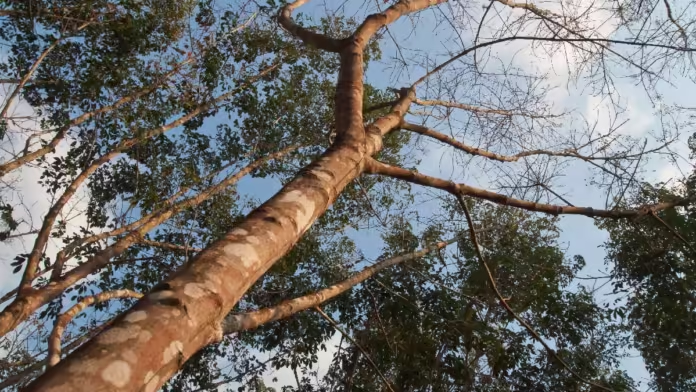The Tripura government has announced its plans to extend the state’s Rubber Mission for another five years, aiming to strengthen the economy and uplift thousands of families who rely on rubber cultivation for their livelihood. Originally launched in 2014, the Rubber Mission has proven to be one of Tripura’s most impactful economic initiatives, making the state India’s second-largest rubber producer after Kerala. With this extension, the government hopes to address the economic challenges faced by rubber cultivators, while further enhancing productivity and quality in the rubber sector.
Chief Minister Manik Saha shared the decision to extend the Rubber Mission after a recent cabinet meeting, emphasizing the economic potential of the initiative. According to him, the extension will include targeted training programs, financial aid, and infrastructural improvements to increase the yield and quality of rubber across the state. Additionally, the government plans to introduce modern technologies in rubber processing to boost productivity and make Tripura’s rubber industry more competitive on a national scale.
The government’s move reflects the rising demand for natural rubber in industries across India and worldwide. With a growing interest in sustainable and renewable materials, natural rubber has gained importance as a key raw material in the manufacturing of tires, footwear, and other consumer goods. Extending the Rubber Mission will allow Tripura to harness this demand, while also creating employment opportunities in rural areas. Currently, over 85,000 hectares of land in Tripura are dedicated to rubber plantations, employing thousands of families across the state. The goal is to increase this land area and encourage more farmers to participate in the Rubber Mission by offering subsidies and financial support.
The Rubber Mission will also focus on providing training in modern farming practices to improve crop health and yield. According to the Rubber Board, these practices can help farmers adapt to environmental challenges and cultivate more resilient rubber trees. The training modules will be conducted in various rubber-growing regions of Tripura and will involve experts from the Rubber Board, who will guide farmers on sustainable plantation management and ways to increase productivity without depleting natural resources.
Another key aspect of the Rubber Mission extension is the development of infrastructure to support rubber processing and transportation. Many small-scale farmers have struggled with transporting their products to larger markets due to poor road connectivity. The government plans to improve transportation networks to ensure that rubber can be moved efficiently to processing centers and markets, ultimately increasing farmers’ earnings. Additionally, the state will introduce advanced rubber processing units to reduce the dependence on raw rubber exports and instead promote the production of value-added rubber goods within Tripura.
Support from the central government has also been crucial for Tripura’s rubber initiatives, and with this extension, the state expects to receive additional funding and technical support. The state government is actively seeking partnerships with private industries to develop a stable market for Tripura’s rubber, which will not only enhance local production but also provide farmers with consistent income streams. By forming such partnerships, the government aims to create a comprehensive supply chain that benefits every level of the rubber industry in the state.
Environmentally, the Rubber Mission is aligned with Tripura’s commitment to sustainable development. Rubber plantations are known for their ability to maintain soil fertility and prevent soil erosion, which is essential for the state’s eco-sensitive regions. By promoting sustainable practices within the rubber industry, the mission contributes to environmental conservation while securing economic benefits for rubber farmers. This balance of environmental care and economic growth has garnered praise for the Rubber Mission, positioning it as a model for other states with rubber cultivation potential.
The extension of the Rubber Mission is expected to have significant socioeconomic benefits for Tripura, bringing stability to rural economies and raising living standards for thousands of families dependent on rubber cultivation. By focusing on training, infrastructure, and market support, the government hopes to make rubber cultivation a viable and profitable livelihood option. Tripura’s rubber farmers now look forward to the mission’s positive impact, hopeful that it will enable them to achieve higher incomes and secure their economic future.
The government’s commitment to extending the Rubber Mission for another five years reflects a broader vision of a self-sufficient, resilient Tripura. With enhanced support for rubber cultivators, infrastructure upgrades, and partnerships to boost market access, the state’s rubber industry is set to witness substantial growth. The next phase of the Rubber Mission could shape not only the economic landscape of Tripura but also provide a model of sustainable growth and rural empowerment for the rest of India.


